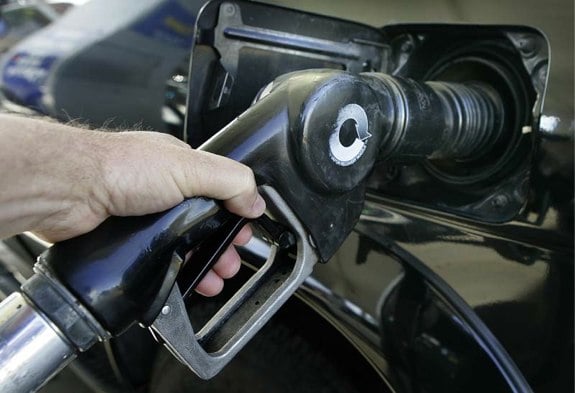Find Our Latest Video Reviews on YouTube!
If you want to stay on top of all of our video reviews of the latest tech, be sure to check out and subscribe to the Gear Live YouTube channel, hosted by Andru Edwards! It’s free!
Monday February 20, 2012 12:10 pm
Average fuel economy of new vehicles increases by 14% compared to four years ago

With the decline of the economy, the automakers took a huge hit in the United States. One could only wonder what outcome of such events would be. Looking past the rollercoaster economy, bailouts, and scandals, consumers have benefited the most as it pertains to the automotive industry by way of increased miles per gallon. As the economy slowly picks itself outta the dump, consumers are slowly returning to the market for new vehicles.
Over the past few years, regulations have passed which mandate more MPGs per vehicle. The old average hovered around 18 miles per gallong. Today, the average hovers around 21 miles per gallon, and is expected to reach 34 miles per gallon by 2016 (this being said among light duty vehicles.) However, regulations suggest that manufactures average 54 miles per gallon by the year 2025. Interestlingly, despite these increases, there has been a small decrease in fuel economy in hybrid vehicles.
Hybrids, naturally known for their great fuel economy, have seen an average of 3 miles per gallong decrease since their introduction into the market. However, we suspect that part of the reason for this is due to the larger hybrids that have been introduced into the market, such as the Volkswagen Touareg Hybrid.
Click through to read the full press release, which includes a bunch of interesting figures.
Fuel economy of new vehicles continues to rise
ANN ARBOR, Mich.-The average fuel economy of current model year vehicles is 14 percent higher than just four years ago, say researchers at the University of Michigan.
For all 2012 light-duty vehicles (cars, pickup trucks, minivans, vans and SUVs) offered for sale, average mpg is 21.5, compared to 18.9 mpg for model year 2008 vehicles. The averages were 21.2 for 2011, 20.7 for 2010 and 19 for 2009.
For new vehicles actually purchased, average fuel economy is typically one-to-two miles per gallon higher-22.5 mpg for model year 2011 (the last full year of sales), 22.1 for 2010, 21.3 for 2009 and 20.8 for 2008.
"This implies that consumers tend to choose vehicle models with better fuel economy than the average of all vehicles available," said Brandon Schoettle of the U-M Transportation Research Institute. "The recent economic downturn, coupled with rising gas prices, has led to an increased interest in purchasing more fuel-efficient vehicles."
Using data from the EPA, Schoettle and UMTRI colleague Michael Sivak also examined fuel economy changes by vehicle characteristics: cars vs. light trucks, vehicle class size, transmission type, number of engine cylinders, drive type, fuel type and hybrid vs. conventional vehicles.
They found that average fuel economy:
- Improved 2.8 mpg for cars (including station wagons) and 1.6 mpg for light trucks (pickups, minivans, vans and SUVs) from model year 2008 to model year 2012. Average fuel economy is currently 23.4 mpg for cars and 18.6 mpg for light trucks.
- Increased for all 12 vehicle-size classes between the 2008 and 2012 model years. The largest increases were 4.1 mpg for station wagons, which had the highest average 2012 rating of 26 mpg, and 3.8 mpg for compact cars, which had the second-highest average of 25.6 mpg. The smallest increases were 0.2 mpg for full-size vans, which had the lowest average 2012 rating of 13.4 mpg, and 0.4 mpg for small pickup trucks, which had the third-lowest average of 18.6 mpg.
- Increased 2.5 mpg for vehicles with automatic transmissions and 2.8 mpg for vehicles with manual transmissions; 2.3 mpg for four-cylinder engines and 1.4 mpg for six-cylinder engines; and 3.4 mpg for front-wheel drive vehicles and 2 mpg for four- or all-wheel drive vehicles from model year 2008 to model year 2012.
- Improved 9.8 mpg for diesel engines and 2.6 mpg for conventional gasoline engines, but dropped 3 mpg for hybrids, which are still more fuel-efficient overall than internal-combustion-only vehicles.
Read More  | The Detroit Bureau
| The Detroit Bureau











